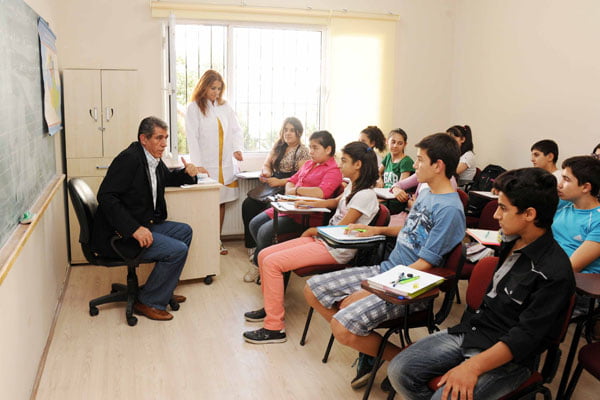Closing down prep schools and calling it ‘transformation’

Date posted: December 4, 2013
BÜŞRA ERDAL, İSTANBUL
Describing the government’s plan to close down the prep schools as a “transformation” is nothing more than saying, “I’m not going to say ‘close down prep schools,’ but I’m going to close them down.” The draft law in question will affect millions of students and their parents, but the debate on prep schools continues with a play on words. In this regard, it is more fruitful to address the legal and constitutional aspects of this issue, and to stick to the essence of the debate.
Article 48 of the Turkish Constitution plays a key role in the debate about the closure of the prep schools. Article 48 says that “everyone has the freedom to work in the field they want. It is free to establish private enterprises.” Full stop. The rulings of Turkey’s Constitutional Court and the European Court of Human Rights (ECtHR) show how this article is implemented.
In a case involving a Turkish citizen who had worked as an insurance inspector before the government revoked his license due to an amendment to a law regulating the sector, the Constitutional Court examined the constitutionality of the amendment — Section 22 (14) of Law 5684. In its judgment, published on June 9, 2011, the court found that the provision in question was in violation of Article 48 of the Constitution.
The case began in 2009 when the defendant’s license to work as an insurance inspector was revoked. The amendment that caused this, passed in 2007, banned insurance inspectors from working in the industry if their spouses or children also work in the insurance sector. The defendant sued the government, challenging the constitutionality of the amendment.
The Constitutional Court found that the amendment imposed restrictions on the defendant’s right to free enterprise, and that these restrictions violated the proportionality principle.
The ECtHR came to similar conclusions in cases involving Ukraine and Moldova. In one, the Moldovan government canceled the license of a mining company. In the other, a mining company was closed down by the government of Ukraine. When the companies challenged the Moldavian and Ukrainian governments at the ECtHR, the court ruled in favor of the mining companies.
Considering all this, the Turkish government might have thought the decision to close the prep schools would not be in compliance with the Constitution because it would violate the right to free enterprise.
As Deputy Prime Minister Bülent Arınç said recently: “This is not closure. We call this a transformation process. This process is called transformation in law.” Are “transformation” and “closure” really different things?
Prep school representatives say, “You cannot close down our businesses.” The government says, “We are not closing them down, we are transforming them.” Transformation is outside interference; these businesses will no longer be allowed to operate as prep schools. The government isn’t telling the prep schools, “Either remain prep schools or turn into private schools.” It is saying, “You are not going to remain prep schools; you will turn into private schools.” Although the government seems to be offering an alternative to closure, this is nothing but an imposition. Prep schools, which owe their existence in Turkish education to a law dated 1965, are being told, “There is no need for prep schools; you can no longer operate.”
Just as the state did not say to its citizens in the 1970s that “there is a need for prep schools, open prep schools,” it cannot now say to them that “there is no need for prep schools, turn them into high schools.” That would be an open violation of Article 48 of the Constitution. The prep schools, which came into existence because of a need, will disappear naturally when there is no longer a need for them.
All in all, when we examine the government’s “transformation” plan for the prep schools, we find bans and closure. This is so evident that it cannot be covered up with a play on words.
Source: Today's Zaman , December 4, 2013
Tags: Democracy | Education | Hizmet (Gulen) movement | Turkey |
























